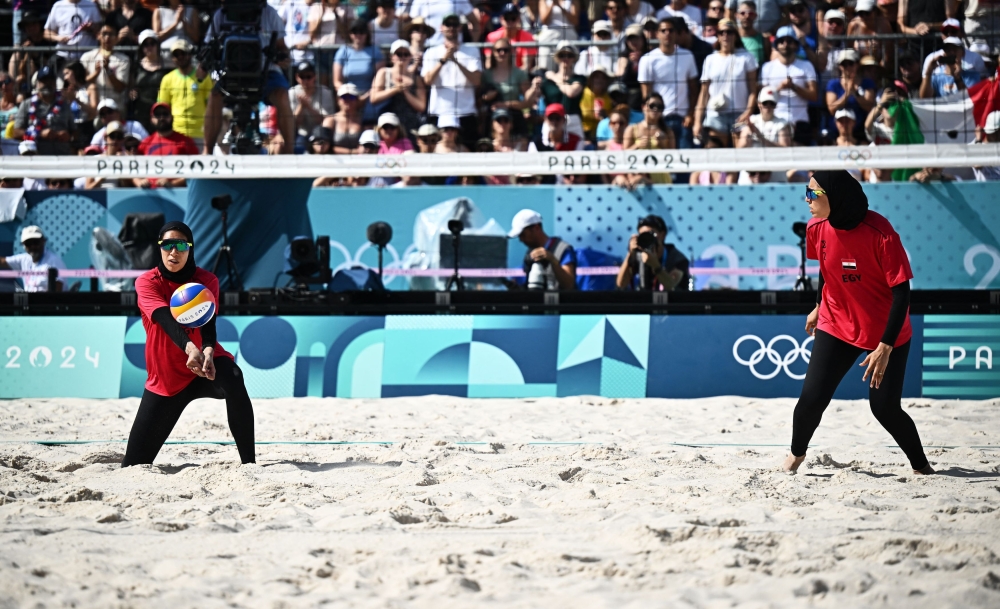KUALA LUMPUR, Aug 2 — Egyptian Doaa Elghobashy made history at the 2016 Rio Olympics as the first beach volleyball player to compete while wearing a hijab. The iconic photo of her and bikini-clad opponent Kira Walkenhorst going up for a smash went viral on social media.
“You don’t tell me to wear a bikini,” the beach volleyball player told Swedish newspaper Expressen.
Elghobashy returns to the Paris Olympics this year, partnering with Marwa Abdelhady.
In the matches against Brazil, Italy and Spain, the contrast was stark. Elghobashy and Abdelhady were dressed in black from top to bottom, with a red T-shirt, and their opponents in bikinis.
“I don’t tell you to wear a hijab, and you don’t tell me to wear a bikini. No one can dictate how I should dress. It’s a free country; everyone should be able to dress as they wish.’”
The hijab has taken centre stage at these Olympics due to France’s law banning the use of hijabs and other religious symbols in public schools and among state employees, which extends to French athletes.
Muslim French sprinter Sounkamba Sylla, who wears a hijab and is part of France’s 400-metre relay team, expressed on Instagram her disappointment that her hijab would prevent her from participating in the opening ceremony along the Seine River.
“You are selected for the Olympic Games, organised in your country, but you can’t take part in the opening ceremony because you wear a scarf on your head,” Sylla posted.
The ban had already drawn attention before the Olympics began.
While foreign athletes are not affected by this rule, The Telegraph reported that several human rights organisations, including Amnesty International, wrote to the International Olympic Committee condemning the ban and urging intervention.
“The bans imposed by the French sports authorities are discriminatory and prevent Muslim athletes who choose to wear the hijab from exercising their human right to play sport without discrimination,” the letter stated.

Abdelhady told Expressen she doesn’t support the hijab ban for French athletes.
“I love playing in a hijab, not in a bikini,” Elghobashy told The Telegraph.
“For some, it might not be ideal, but it’s OK for you. It’s about freedom; I feel comfortable and good. The hijab is a part of me. It’s not the same for everyone.”






















